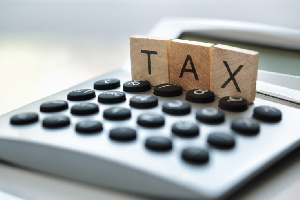The introduction of the e-levy by government in its current budget statement has generated several discussions among the Ghanaian populace. Many Ghanaians have expressed their discontent over government’s decision to introduce the Electronic Transaction Levy also known as E-levy. Delivering the 2022 budget in Parliament on Wednesday, November 17, 2021, the Finance Minister, Ken Ofori-Atta indicated that government had decided to place a levy on all electronic transactions to widen the tax net and rope in the informal sector. This has taken over the latest trend in the country.
Taxes according to the oxford dictionary are monies that are paid to government for public service. Others also define taxes as a compulsory contribution to state revenue, levied by government on worker’s income and business profits or added to the cost of some goods, services and transactions. Taxes are direct or indirect and may be paid in the form of money or as its labour equivalent. The first known taxation took place in Ancient Egypt around 3000-2800 BC. Many countries have tax systems in place in order to pay for public, common or agreed national needs and for the functions of government. Most countries charge a tax on an individual’s income as well as on corporate income. Taxation in economics means wealth transferred from households or businesses to the government. This can either increase or reduce economic growth and economic welfare of a country. Taxation is undoubtedly a highly debated topic nevertheless, the main purpose of taxation is to raise resources to finance government expenditure in a way that is administratively feasible, equitable and efficient (Burges and Stern, 1993).
Taxation provides one of the principal lenses for measuring state capacity, state formation and power relations in a society (Di-John, 2006) and helps correct market imperfections as well as modify the distribution of wealth or income. Without taxes, government would be unable to meet the demands of their citizens. Government imposes charges on their citizens and businesses as a means of raising revenues which are used to meet their budgetary demands including financing government and public projects as well as making the business environment in the country conducive for economic growth. Taxes are extremely essential as government makes use of revenues to finance social products (health sector, educational sector, agriculture) as well as raising the standard of living in a country. The higher the standard of living, the stronger and higher the level of consumption and businesses flourish and thrive more when there is a market for their product and services. With a higher standard of living, businesses would be assured of higher domestic consumptions.
In order for businesses to thrive and flourish in the country, there has to be good infrastructure such as good roads, electricity, good facilities, maintenance of law and order, defense against external aggression, regulation of trade etc. Provision of these social amenities or services and infrastructure goes a long way to reduce the total cost of operation of a business. Government making use of revenues for infrastructural development in effect provides employment which promotes economic activity throughout the country. Taxation is important to businesses because governments can fund this money back into the economy in the form of loans or other funding forms.
Stabilization of the economy, redistribution of income, provision of economic services are major responsibilities a government owes its citizens but the ability of government to live up to these responsibilities largely depends on the amount of revenue that is generated through the various sources both internal or external sources available to it and again, taxation happens to be one of such sources. Taxation is one of the oldest ways by which the cost of government is funded and also a great instrument for boosting the potential of public sector performance and repayment of public debt. It is key to any nation in its pursuit of self-reliance and in meeting its economic regulation needs thus, living beyond aid.
The role taxation plays in an economic growth and in the development of a country cannot be overstressed. The efficiency and effectiveness of the tax system, as well as accountability of revenue agencies and government, are all critical if taxation will positively contribute to economic growth. As Ghanaians, we must come to terms with the fact that taxes are essential as they help build a nation and every citizen is entitled to benefiting from the services these revenues provide in the long run.

